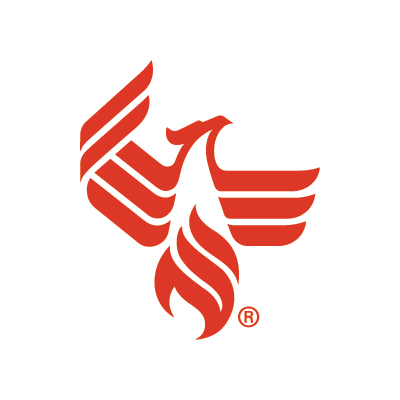What can you do with an MSN degree?

This article was reviewed by Raelene Brooks, Dean, College of Nursing.

Registered nurses with a bachelor’s degree who have thought about enhancing their careers in the healthcare field may want to consider pursuing an MSN degree. Let’s look at what an MSN degree is and what jobs require a master’s degree in nursing.
What is an MSN degree?
A Master of Science in Nursing (MSN degree) with a focuses on informatics, nursing administration or nursing education, can help registered nurses move into the leadership side of patient care. RNs pursuing a master’s degree in nursing can also learn skills for additional advanced practice roles like a MSN/Family Nurse Practitioner. In MSN degree programs, students build upon their current role as registered nurses. They learn vital skills in clinical practice, informatics, leadership, administration, physical assessment, pharmacology and pathophysiology. MSN graduates are eligible to sit for the American Nurses Credentialing Center (ANCC) Family Nurse Practitioner-Board Certified (FNP-BC) credential or the American Association of Nurse Practitioners (AANP) Family Nurse Practitioner-Certified (FNP-C) credential.
Coursework touches on a variety of concepts important to clinical and general practice, including research and evidence-based practice, while helping students develop their nurse practitioner, leadership, research, analytics or academic skills needed for their area of specialty practice.
How fast can you get an MSN?
Online nursing programs can be an option for nurses interested in getting an MSN in a shorter amount of time. An online program typically combines online coursework and assignments with on-site clinical experience. A nursing school that offers asynchronous learning can be ideal for students who are working or need a flexible program.
Those with an active RN license and a bachelor’s degree in a non-nursing discipline can get an MSN faster by enrolling in a nursing bridge program. These programs are often designed for working nurses. They start with bridge courses and then move into a master’s program.
What can you do with an MSN degree?
An MSN can provide nurses with the foundation to take their experience further and improve the delivery of healthcare. Nurses with an MSN can expect to work in hospitals, clinics, classrooms or labs. In today’s day and age, some may even work from their living room, providing patient care remotely. MSN students learn how to help save lives through an advanced understanding of using data to inform decisions and improve patient care, coach other nurses, provide specialty family care or influence the future of nursing,depending on the advanced practice path they choose to pursue.
A Master of Science in Nursing can prepare registered nurse graduates for leadership roles in a variety of specializations that include nurse administration, nurse education, informatics and family nurse practitioner. Nurses with a Master of Science in Nursing could also pursue advanced practice roles in public and community health nursing. Here are some career overviews for nurses with MSN degrees.
Nursing instructor
Registered nurses who enjoy teaching others or research may be interested in specializing in nurse education. This can lead to a career as a postsecondary nursing teacher or instructor. These professionals are responsible for teaching patient care to nursing students in classrooms or clinical units. Nursing instructors often work at universities, community colleges or other postsecondary education providers. When not teaching, they may be involved in research or other administrative tasks.
As of May 2024, post-secondary teachers earned between $48,570 and $199,250, with a median wage of $83,980, according to BLS.
Employment of postsecondary teachers is projected to grow 8 percent from 2023 to 2033, faster than the average for all occupations. About 118,900 openings for postsecondary teachers are projected each year, on average, over the decade, according to BLS.
BLS Occupational Employment Projections, 2022-2032 is published by the U.S. Bureau of Labor Statistics. This data reflects BLS’ projections of national (not local) conditions. These data points are not specific to University of Phoenix students or graduates.
Salary ranges are not specific to students or graduates of University of Phoenix. Actual outcomes vary based on multiple factors, including prior work experience, geographic location and other factors specific to the individual. University of Phoenix does not guarantee employment, salary level or career advancement. BLS data is geographically based. Information for a specific state/city can be researched on the BLS website.
Nurse practitioner
An MSN degree with a specialization in Family Nurse Practitioner can help prepare registered nurses for a career as a nurse practitioner or family nurse practitioner. A nurse practitioner can work in a variety of settings, including clinics, college campuses and hospitals. According to the BLS, nurse practitioners can be both primary and specialty care providers, making diagnoses, ordering medical tests and prescribing medications for their patients. Additionally, these professionals are responsible for treating common and acute physical and mental illnesses and injuries. They use theory and evidence to provide health protection.
A nurse practitioner may choose to specialize in family medicine. As a family nurse practitioner (FNP), nurses work with people of all generations, often in schools or other public facilities. Responsibilities may include coordinating the birthing process as well as providing health advice and emotional support. Additionally, these professionals may teach primary care patients how to manage a chronic or brief illness such as the common cold or strep throat. They can also assist in treating injuries for people of all ages.
As of May 2024, nurse practitioners, nurse anesthetists and nurse midwives earned between $98,520 and $217,270, with a median wage of $129,210, according to BLS.
Employment of nurse practitioners, nurse anesthetists and nurse midwives is projected to grow 40 percent from 2023 to 2033, much faster than the average for all occupations. About 31,900 openings for these jobs are projected each year, on average, over the decade, according to BLS.
Medical and health services manager
Registered nurses who are interested in informatics, administrative roles or analyzing data to inform patient outcomes, may want to consider a career as a medical and health services manager. These professionals help to coordinate and plan business activities and improve efficiency. They may prepare and monitor budgets, create schedules or maintain organizational records.
As of May 2023, medical and health services managers earned between $69,680 and $219,080, with a median wage of $117,960, according to BLS.
Employment of medical and health services managers is projected to grow 29 percent from 2023 to 2033, much faster than the average for all occupations. About 61,400 openings for medical and health services managers are projected each year, on average, over the decade, according to BLS.
Get started on your MSN degree
With an MSN degree in a variety of specialty areas, registered nurses will have the foundation to take their patient care to the next level. University of Phoenix offers these graduate nursing degrees:
- Master of Science in Nursing with a concentration in Nurse Administration
- Master of Science in Nursing with a concentration in Nurse Education
- Master of Science in Nursing / Family Nurse Practitioner
- Master of Science in Nursing / Psychiatric Mental Health Nurse Practitioner
Want more information? Contact a UOPX representative.

ABOUT THE AUTHOR
Brian Fairbanks is a freelance writer with a background in SEO content creation and blog article development

ABOUT THE REVIEWER
Dr. Raelene Brooks, dean of the College of Nursing, has been a registered nurse for more than 25 years and practiced extensively in the areas of ICU, trauma and critical care. Her publications include a focus on nursing education, critical care, and organizational wellness and engagement. She is a leader in creating, guiding and launching innovative curriculum.
This article has been vetted by University of Phoenix's editorial advisory committee.
Read more about our editorial process.



